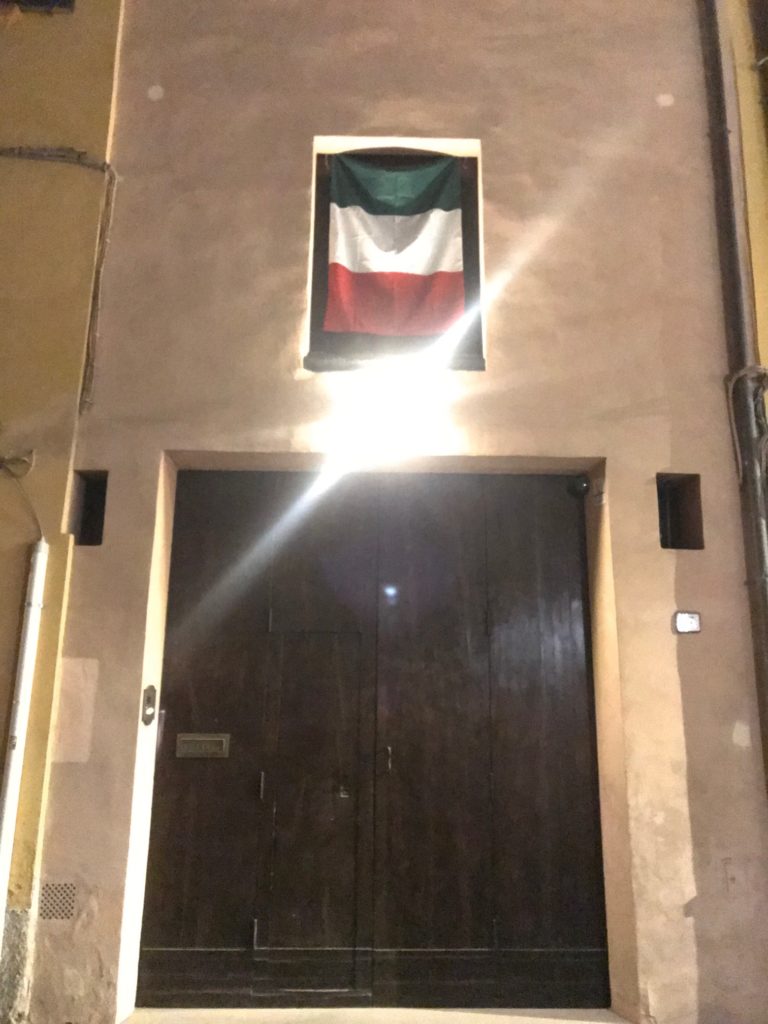what I'VE learned
Living In Italy
Surprising Upsides To Expat Life
In Italy During Coronavirus
When I embarked on my Italian wine journey nearly three years ago, I could have never imagined having to face a worldwide health crisis, living in Italy, or anywhere, for that matter.
Rather than recount grave tales of the current quarantine situation, I wanted to share what I’ve only now realized my fellow Italian citizens have taught me.
Life is Unpredictable
It’s been said a million times before, but now, more than ever, we need to remember that we cannot predict or control every aspect of our lives. As an American, this is something I’ve found very hard to accept. Living in Italy, amongst a population of people who contrastingly seem to embrace unpredictability, has shed a spotlight on my inability to do so.
From my first days working on a beautiful vineyard in central Italy, I wanted to know exactly what I’d be doing when. I’d inquire about lunchtime, dinner time, and my future tasks for the upcoming week, often met by quizzical and unspecific replies. “We’ll pause for lunch when we’re done with these rows”, pointing to an undefined plot of vines, or “when we pick enough Trebbiano for today,” the winemaker would tell me.
Gone were the days of living confined to my office calendar, handcuffed to the rigid meetings, scheduled a month or more in advance. Countless more examples in the Italian countryside, as well as in my current city of Bologna, reinforce that Italians innately embrace the present, instead of wasting time obsessing about the future.
This take-things-as-they-come mindset has proven very beneficial in combating hysteria and fear during these now uncertain times of Coronavirus. Italy and the majority of its people are not overly panicking about tomorrow or being frightened by media reports from abroad.
Despite exaggerated accounts, Italians are not hoarding groceries and fighting in stores, as I’ve witnessed with every prediction of 6 inches of snow in the U.S. They focus their energy on dealing with the day at hand, taking time to prepare for the next, but never forgetting to find a few minutes to laugh and be grateful to be alive.

Not Everything is a Competition
Unless of course, we’re talking about a football (soccer) match, Italians have shown me that life is much more than a series of back-to-back competitions. In America, we are groomed for competition from birth — just look at the insanity surrounding pre-school admissions. Parents in many parts of the US are forced to apply for pre-school the moment their child is born, in fear of being left out in the cold once their child approaches school-age — 3 years later.
From elementary school through high school, the competition only increases with each passing year. Immense pressure is put on students to outperform one another, gain entry to the highest classes, most prestigious clubs, teams, and of course colleges. Pre-SATs, SATs, state proficiency exams, and class-rankings pit every student against each other, creating tremendous anxiety and comparisons amongst impressionable teenagers.
In the US, very rarely are students encouraged, or afforded the time, to help one another succeed. Instead, they are told to focus on grades, activities, transcripts and overall peer-group standing. Fierce competition for the few coveted spots at elite and popular universities drives an inordinate amount of stress and do-whatever-it-takes approach. Parents and students resort to insane, sometimes illegal, measures to gain advantages and excel above the next student. Only now, are people finally being held accountable for admissions cheating scandals.
This cut-throat competition and dog-eat-dog mentality does not permeate society in Italy or most parts of Western Europe. Many factors contribute to this of course, but one major reason is that most European universities are public and accessible to all citizens, for free, or very little money. It’s been truly eye-opening to see how much this one difference can affect a nation’s culture and mindset of its society.
Living in Italy, children and teenagers grow up without the looming fear of college admissions hanging above their heads. I’d argue, this results in Italians being less individualistic and hostile towards one another, from an early age. Family values are emphasized instead of GPAs, and more time is spent cultivating relationships and passing on priceless traditions. Additionally, students generally dedicate more time to their passions, communities, and appreciation of the arts.
Consequently, many Italian adults have numerous “job titles”, such as a lawyer by day, cheesemaker by night. It’s also common for people to work across various industries, instead of being pigeonholed into one. The freedom that comes with guaranteed higher education creates more opportunities to become successful in a field of your choosing, rather than a field that can most-efficiently pay off $100k+ student debt — as is often the case in America.
While competition is, of course, healthy, especially in business, I think we Americans often forget that life itself is not a competition. We must strive for meaningful lives — not only aim for high test scores, job-titles, and bank accounts, simply to out-shine the next person.
Italy’s economy is far from perfect, however, living in this country during good times, and recent times of difficulty has proven to me that quality of life defines a country much more than its GDP. Italians have come together to face this crisis as a unified and optimistic society, something I’m very proud to be a part of, now, more than ever.
#Andràtuttobene — Everything will be alright.

Interested in how you can live in Italy? Head to my guide on making wine. You’ll find resources and ways to live in Europe or anywhere in the world, making wine and/or helping small businesses.